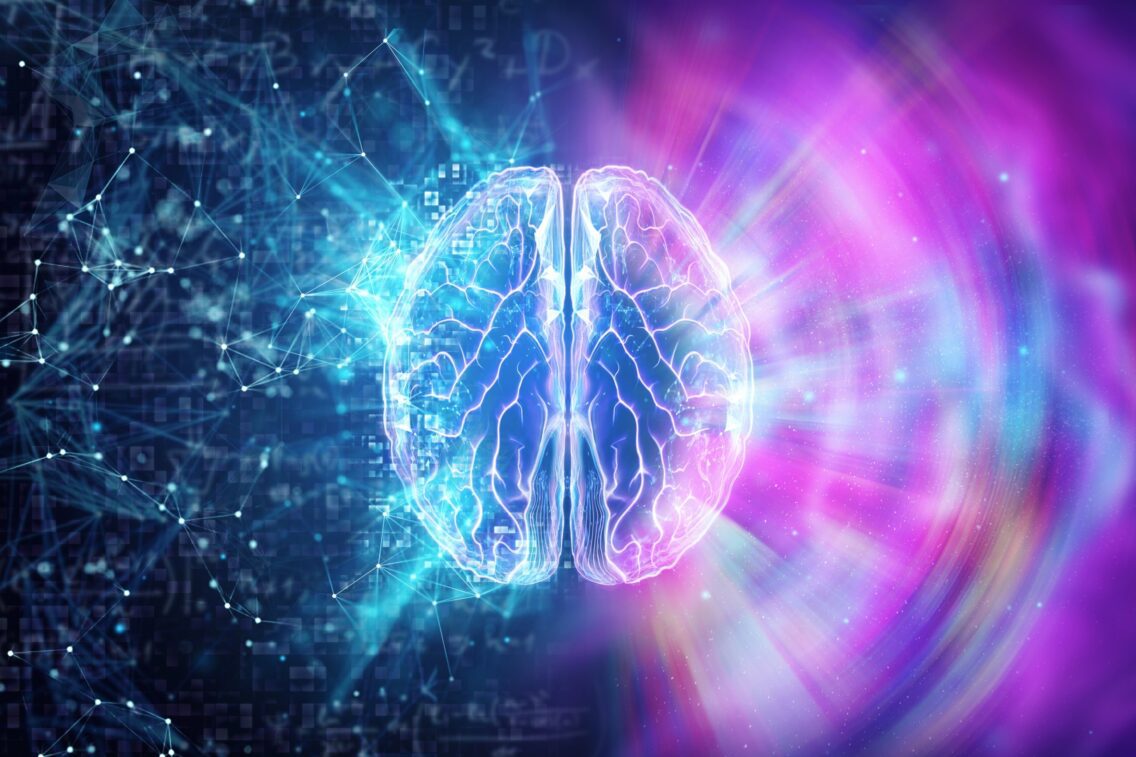A Guide To Nootropics & Brain Enhancement To Up Your Cognitive Potential

People are increasingly exploring ways to improve their brain function and unlock their full cognitive potential in today’s fast-paced society, where cognitive performance and mental well-being are highly prized.
As a result, there is a growing interest in Nootropics, sometimes known as cognitive enhancers or smart medications.
Nootropics are chemicals that are thought to boost cognitive function in areas such as memory, focus, attention, and overall mental performance.
In this blog post, we’ll talk about what they are, the benefits of Nootropics, their mechanisms of action, and the potential side effects of nootropics.
So, let’s look into the world of nootropics and see how they can potentially improve brainpower and cognitive abilities:
What Are Nootropics?
Nootropics, also known as cognitive enhancers or smart drugs, are substances that are used to enhance cognitive function, memory, focus, creativity, and overall mental performance.
They are designed to improve various aspects of brain function, including learning, memory retention, attention, and executive functions.
Nootropics can be naturally occurring substances like herbs, dietary supplements, or synthetic compounds created in laboratories.
They function by regulating neurotransmitters, increasing cerebral blood flow, shielding the brain from oxidative stress, or encouraging neurogenesis (the growth of new neurons) and synaptic plasticity (the brain’s ability to make and reconfigure connections between neurons).
Natural and synthetic nootropics commonly use substances like piracetam, modafinil, caffeine, L-theanine, omega-3 fatty acids, and many others.
Classification and Types of Nootropics
Here are the main classifications of nootropics:
Natural Substances
These nootropics are derived from natural substances such as herbs, vegetation, and natural compounds. These substances have been traditionally employed in traditional medical systems, and their cognitive-enhancing properties are now acquiring recognition.
Some examples include:
Herbal Extracts: Substances like ginkgo biloba, bacopa monnieri, and Panax ginseng are known for their potential to enhance memory, focus, and overall cognitive function.
Vitamins and Minerals: Essential nutrients like vitamin B complex, vitamin D, magnesium, and zinc play crucial roles in brain health and cognitive performance.
Synthetic Compounds
Synthetic nootropics are made in labs and are meant to improve how well your brain works. Most of the time, these substances are made by changing the chemical structures to get the results that are wanted.
Some examples of synthetic nootropics include:
Racetams: This class of compounds includes piracetam, aniracetam, and oxiracetam. Racetams are known for their ability to improve memory, learning, and overall cognitive function.
Ampakines: These substances enhance the function of AMPA receptors, which play a role in synaptic plasticity and memory formation.
Eugeroics: Eugeroics like modafinil and armodafinil are wakefulness-promoting agents that can enhance alertness and cognitive performance.
What is Nootropics’ Mechanism Of Action?
Don’t you know how Nootropics work? Hold your horse, as we’ve got you covered with their work mechanism:
1. Enhancing Neurotransmission
Increasing Acetylcholine Activity
Some nootropics, such as racetams, enhance acetylcholine’s release, synthesis, or receptor sensitivity, a neurotransmitter crucial for learning, memory, and cognitive processes.
Modulating Dopamine Levels
Certain nootropics can influence dopamine’s release, reuptake, or metabolism, a neurotransmitter involved in motivation, attention, and reward pathways.
2. Promoting Neuroplasticity
Enhancing Synaptic Plasticity
Nootropics like racetams may facilitate long-term potentiation (LTP), a process associated with strengthening synaptic connections and improving learning and memory.
Stimulating Neurogenesis
Some substances, including certain herbal extracts, may promote the growth of new neurons in regions of the brain involved in memory formation and learning.
3. Increasing Cerebral Blood Flow
Vasodilation
Certain nootropics can dilate blood vessels in the brain, improving cerebral blood flow and oxygen delivery. This enhanced blood flow ensures optimal nutrient supply and waste removal, supporting overall brain function.
4. Modulating Neurotransmitter Receptors
AMPA Receptor Activation
Some nootropics, such as ampakines, act on AMPA receptors, which play a crucial role in synaptic plasticity, memory, and learning.
GABAergic Modulation
Certain substances can influence GABA receptors, which regulate inhibitory neurotransmission. By modulating GABAergic activity, nootropics may promote a balance between inhibition and excitation in the brain.
5. Protecting Against Oxidative Stress
Acting as Antioxidants
Many nootropics possess antioxidant properties, scavenging free radicals and reducing oxidative stress in the brain. This protection against oxidative damage can help maintain neuronal health and cognitive function.
6. Anti-inflammatory Effects
Reducing Neuroinflammation
Some nootropics exhibit anti-inflammatory properties, inhibiting the production of pro-inflammatory molecules and reducing neuroinflammation. This can contribute to preserving brain health and cognitive function.
Effects & Benefits Of Nootropics For Brain Health
Listed below are some of the benefits of Nootropics for the brain that are too good to be true:
- Memory & Learning Enhancement
Nootropics have been found to improve many memory components, such as working memory, long-term memory, and recall.
They may boost information retention and retrieval abilities, which can benefit students, professionals, and those looking to improve their cognitive talents.
By improving working memory, nootropics may aid in tasks that require multitasking, problem-solving, and decision-making.
- Increased Focus & Attention
Many nootropics contain stimulant-like characteristics that can boost alertness, focus, and attention span.
They may help in task concentration, mental clarity, and distraction reduction, increasing productivity and performance.
Improved focus and attention can significantly impact productivity and performance, whether it’s studying for exams, working on complex projects, or engaging in creative endeavors.
Nootropics can provide individuals with the cognitive edge necessary to achieve higher levels of concentration and mental efficiency.
- Increased Mental Energy
One of the biggest benefits of Nootropics is that they can increase mental energy and motivation, allowing people to get rid of mental tiredness and maintain cognitive effort for longer periods.
By increasing mental energy levels, nootropics can help individuals overcome procrastination, maintain focus during long working hours, and achieve higher levels of productivity.
This can be useful during cognitively taxing jobs or situations requiring lengthy focus and mental stamina.
- Reduced Anxiety & Depression Symptoms
Some nootropics exhibit anxiolytic properties, meaning they can help reduce symptoms of anxiety.
By modulating neurotransmitter levels associated with anxiety, such as gamma-aminobutyric acid (GABA), nootropics may promote a sense of calmness and relaxation, reducing anxiety-related cognitive impairments.
Furthermore, certain nootropics can have mood-enhancing effects, helping to alleviate symptoms of depression.
By influencing neurotransmitters involved in mood regulation, such as serotonin and dopamine, they may promote a more positive emotional state and improve overall mental well-being.
- Neuroprotection & Brain Health
Many nootropics include antioxidant and anti-inflammatory qualities that can protect the brain from oxidative stress and neurodegenerative damage.
They may encourage the development of new neurons, boost neural flexibility, and promote general brain health.
Nootropics have demonstrated the potential to lower the risk of age-related cognitive decline and neurodegenerative disorders, including Alzheimer’s and Parkinson’s.
Nootropics Potential Risks & Side Effects
Let’s talk a bit about Nootropics side effects you need to keep an eye on:
Overuse and Addiction Potential
· Misuse or overuse of certain nootropics can lead to dependence or addiction.
· Stimulant-based nootropics, such as modafinil or amphetamines, have a higher potential for misuse and may result in withdrawal symptoms or dependence if used excessively.
Adverse Effects and Interactions
· Some individuals may experience headaches as a common side effect of certain nootropics, especially stimulant-based ones.
· Gastrointestinal issues such as nausea, stomach upset, or diarrhea may occur with specific substances or higher doses.
Sleep Disturbances
· Certain nootropics, particularly those with stimulating effects, can interfere with sleep patterns, causing difficulties in falling asleep or disrupting the quality of sleep.
· Timing of administration, dosage, and individual sensitivity play a role in sleep-related side effects.
Added Bonus:
Better Sleep for Enhanced Brain Function
Drug Interactions and Contraindications
· Nootropics may interact with other medications or supplements, potentially altering their effects or causing adverse reactions.
· It is important to consult with a healthcare professional before combining nootropics with other substances to ensure safety and prevent interactions.
· Individuals with specific medical conditions or taking medications should exercise caution and seek medical advice before using nootropics.
Allergic Reactions
· In rare cases, individuals may experience allergic reactions to certain nootropics, resulting in symptoms such as skin rashes, itching, or swelling.
· Immediate medical attention should be sought if any severe allergic reactions occur.
Summary
Nootropics is a fascinating field for anyone looking to improve their cognitive abilities and optimize brain function.
They have attracted the attention of students, professionals, and individuals seeking cognitive enhancement due to their ability to boost memory, focus, attention, and overall mental function.
These substances have shown promise in unlocking the brain’s potential by targeting neurotransmitters, promoting neuroplasticity, increasing cerebral blood flow, and protecting against oxidative stress.
Let’s take a step forward and unlock your true brain potential.









